GeneLite sets apart from other LED package suppliers by focusing on advanced solutions such as Mini Flip Chip, CSP, QD-LED, multi-chip LED module, and Micro LED. The sample Micro LED product showcased by GeneLite at this year’s NEPCON JAPAN was a Micro LED package containing 50µm chips. Using an LED driver, the sample product can light up and display RGB separately. The company stated that the sample product achieves high performances for the display application, including reaching 1,500 pixels per inch (PPI) in resolution and 5,000 nits in luminance.
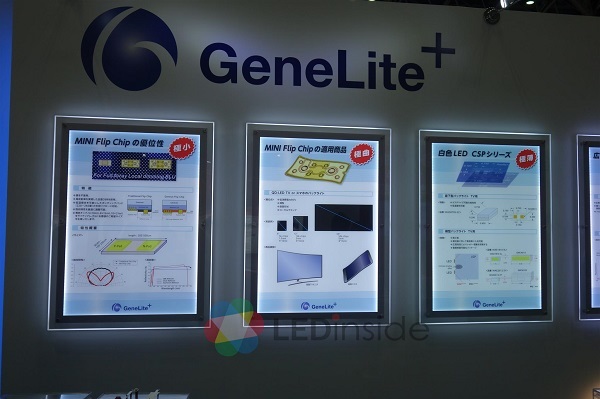 |
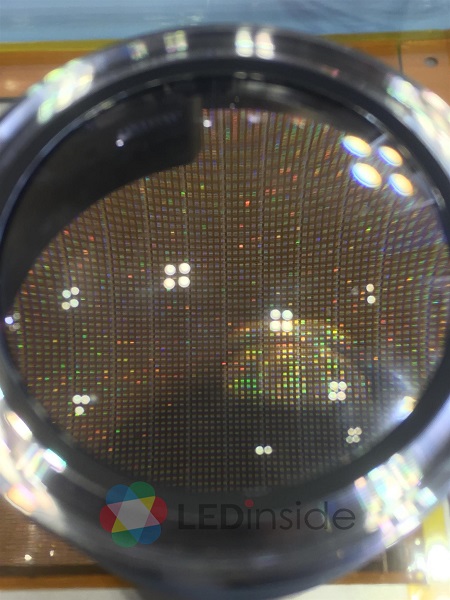 |
|
GeneLite’s RGB Micro LED package features 50µm chips for displaying RGB. (Images: LEDinside) |
Shibuya Corp.
During NEPCON JAPAN, Shibuya exhibited its DB258 flip-chip bonder that specifically addresses the requirements of fabricating extremely small chips and optical components. Capable of attaining an accuracy of ±2μm (3σ), the DB258 bonder has arrived on the market just as the Micro LED technology is now at the early stage of development. Several Micro LED developers have already commenced trial operation of this equipment in hopes finding technical breakthroughs that can help them get past the bottlenecks in the production process. Although DB258 has shown very high accuracy, its UPH for now is not particularly high. The machine is therefore geared towards small-batch production of different samples for R&D purposes.
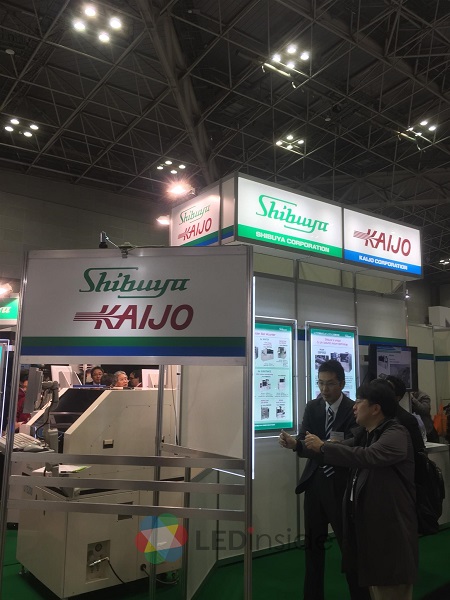 |
|
Shibuya’s booth at NEPCON JAPAN (Image: LEDinside) |
TDK Corp.
TDK presented its highly accurate bonding system for processing not only Micro and Mini LEDs but also other chip products related to 5G and IoT applications. Notable specifications of AM-15 applied in Mini LED market, which accuracy reaching ±2µm (3σ) and mounting tact time of 0.72 seconds per chip. Looking ahead, TDK is keen to develop Micro LED equipment to achieve market requirement in the future.
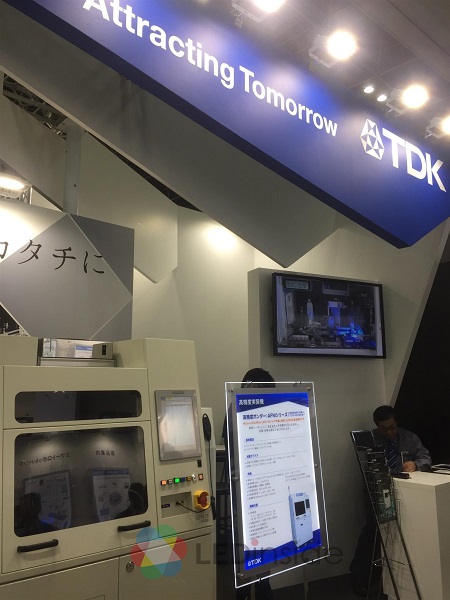 |
|
TDK offers highly accurate bonding systems for semiconductor components. (Image: LEDinside) |
HU-BRAIN Inc.
HU-BRAIN put the spotlight on its a six-sided automatic optical inspection (AOI) system that checks for defects on semiconductor components such as Micro LED chips. Composed of multiple parts, this complex inspection system uses a rotatory mount head (RMH) with a high-resolution camera. With the capability to find the finest scratches on the surfaces of a chip, this equipment is expected to be indispensable in the manufacturing of Micro LEDs.
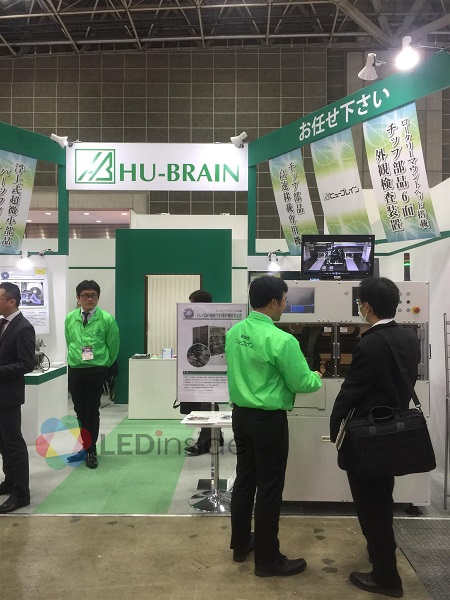 |
|
HU-BRAIN showcases its six-sided AOI system at the trade show. (Image: LEDinside) |
“Practical Manufacturing of Micro-LED Displays by Liquid Mass Transfer” – A Special Seminar Presented by eLux Inc.
Dr. Paul Schuele, CTO of eLux, was the speaker at a special seminar on Micro LED that was held during NEPCON JAPAN. The presentation mainly discussed the properties of Micro LED and his company’s mass transfer solution. According to Dr. Schuele, the size range of Micro LEDs creates many challenges in the LED production process with respect to epitaxy, transfer yield rate, inspection/repair, color conversion, driver, and many other areas.
Dr. Schuele pointed out that eLux currently has more than 20 patents on the fluidic assembly method it has developed for Micro LED displays. These patents cover mass transfer of Micro LED arrays, Micro LED driver scheme, color conversion structure, fabrication of micro displays, and etc. On the whole, eLux’s patent portfolio is comprehensive and demonstrates that the fluid assembly method is simpler and more cost effective than other conventional methods based on the pick-and-place transfer of LEDs. Furthermore, eLux’s processing solution is scalable to 5 million UPH, which is much higher than the rates of rival technologies. Because Micro LED chips are so small, each stage in their production has to be carefully researched and patented as a key technological component. Only this approach will raise the yield rate and UPH so that the Micro LED displays made from this process are of high quality and low cost.
Dr. Schuele also stated that eLux’s fluidic assembly method will be used to make Micro LED displays for tablets, PCs, TVs, and signage devices. The products based on eLux’s technology will thus differentiate from Sony’s and VueReal’s applications, which are large-size TVs and VR/AR devices, respectively.
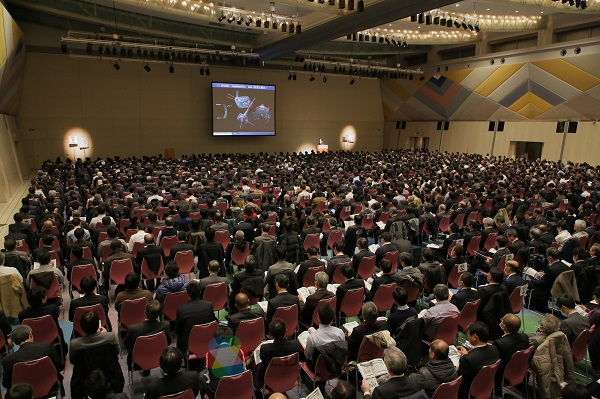 |
|
A special seminar was held by eLux to present its method of manufacturing Micro LED displays. (Image: LEDinside) |

















